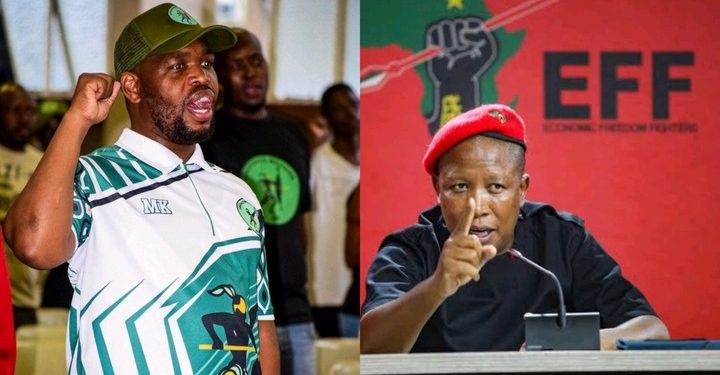In a sharp critique of Economic Freedom Fighters (EFF) leader Julius Malema, MK Party supporter Nathi Sithole has accused the firebrand politician of misleading young South Africans with rhetoric disguised as genuine political discourse.
“Young people are tired of Julius Malema scamming them using insults and calling it politics. Politics of insults never helped anyone,” Sithole said during a recent rally, reflecting growing dissatisfaction among some factions with Malema’s confrontational approach.
The MK Party, buoyed by the high-profile additions of former President Jacob Zuma and ex-Public Protector Busisiwe Mkhwebane, has been gaining momentum as a rising political force. It presents itself as an alternative to the combative style often associated with Malema and the EFF. Sithole’s remarks come as political rivalries intensify in the lead-up to South Africa’s next elections.
Malema’s reputation as an unapologetic critic of the political establishment has earned him significant support, particularly from young voters frustrated by the status quo. However, his fiery speeches and pointed attacks have also drawn criticism for being divisive and lacking substantive policy proposals.
Sithole’s critique underscores a growing demand for constructive engagement and actionable solutions in South African politics. “Young people need real opportunities, real changes. Insults and grandstanding won’t create jobs or improve lives,” Sithole asserted.
Political analysts believe the MK Party’s focus on pragmatic leadership and alternative voices could influence South Africa’s political landscape. Dr. Zanele Khumalo noted, “Sithole’s criticism could resonate with voters who are disillusioned by combative politics and want leaders focused on tangible progress.”
Malema has yet to respond to the comments but is known for doubling down on criticism, often framing his approach as essential for addressing corruption and championing radical economic reform.
Whether Sithole’s remarks will spark broader discourse on the state of South African politics or shift voter sentiment remains uncertain, but they add a fresh perspective to the country’s dynamic political debate.






















